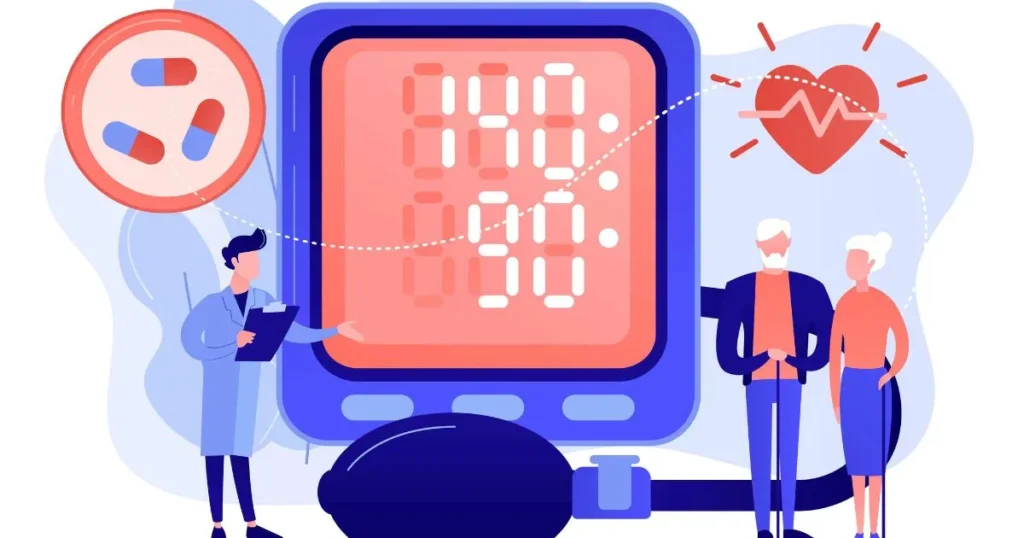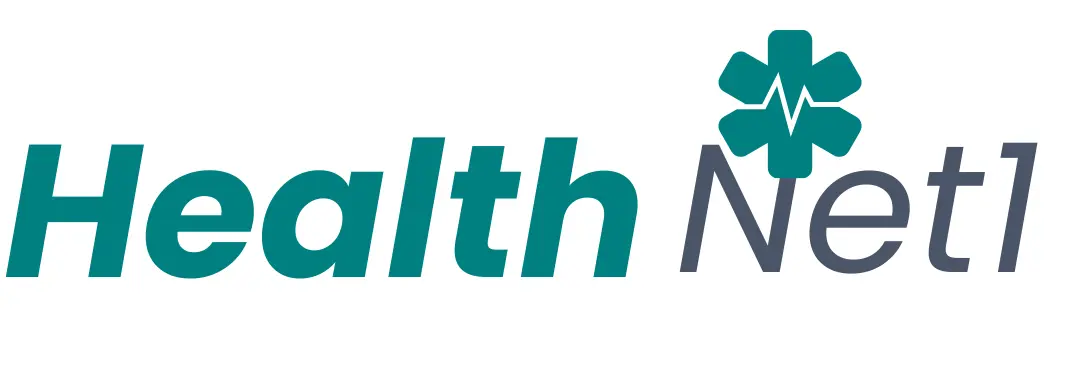Can Being Sick Cause High Blood Pressure? The Surprising Connection You Should Know
When Sickness Strikes, So Can High Blood Pressure
Have you ever dragged yourself out of bed feeling miserable from a nasty cold or stubborn flu, only to find out your blood pressure is suddenly through the roof? It’s enough to make you wonder if your body is playing tricks on you. Maybe you’ve seen the numbers on the cuff and panicked. Is this normal? Should I worry?
Table of Contents
Here’s the thing: you’re not alone. Many people notice their blood pressure creeping up when they’re under the weather. But is it something to lose sleep over, or just your body’s way of fighting back? This guide breaks it all down for you, so you can focus on getting better without unnecessary worry.
Understanding High Blood Pressure
What Exactly Is Blood Pressure, Anyway?
Before you can figure out why illness might push your numbers up, it helps to know what those numbers really mean. Blood pressure refers to the force that your circulating blood exerts on the inner walls of your arteries as your heart circulates it throughout your body.
It’s measured using two numbers:
- Systolic (top number): This measures the pressure inside your arteries each time your heart contracts.
- Diastolic (bottom number): This indicates the pressure in your arteries while your heart is at rest between beats.
Below is a simple breakdown of healthy and elevated blood pressure ranges:
| Category | Systolic | Diastolic |
| Normal | Less than 120 | Less than 80 |
| Elevated | 120–129 | Less than 80 |
| Hypertension Stage 1 | 130–139 | 80–89 |
| Hypertension Stage 2 | 140 or higher | 90 or higher |
Common Causes of High Blood Pressure
Hypertension, commonly known as high blood pressure, usually develops gradually over the years.
Factors like diet, stress, genetics, and lifestyle choices can push it up. But temporary spikes are possible too. Things like stress, pain, dehydration, and, yes — being sick — can send those numbers climbing, even if only for a short while.
Can Illness Really Make Your high blood pressure when sick?
Your Body’s Stress Response
When you’re sick, your body launches an all-out defense to fight off whatever bug has invaded. Your immune system goes into high gear, your body temperature can rise, and your heart has to pump more actively. Fever, muscle aches, and chills can all put added strain on your body.
To keep your vital organs supplied with enough oxygen and nutrients during this fight, your heart may beat faster. That increased heart rate can push up your blood pressure. It’s part of your body’s natural stress response — meant to help you, not harm you.
Dehydration: The Hidden Culprit
Many illnesses make you sweat, vomit, or lose fluids in other unpleasant ways. When you’re dehydrated, your blood volume drops. To keep enough blood flowing to your brain and organs, your blood vessels narrow, and your pressure can go up as a result.
Staying hydrated isn’t just about feeling less thirsty — it’s about keeping your whole system running smoothly, including your blood pressure.
Inflammation Adds to the Mix
When you’re battling an infection, your immune system releases chemicals that cause inflammation. This inflammation can tighten your blood vessels temporarily. Combined with fever and dehydration, it’s no surprise your numbers might spike a bit.
What Kinds of Illnesses Can Raise Blood Pressure?
Not every sniffle will send your blood pressure soaring. But certain conditions are more likely to cause a noticeable bump.
Here are some common examples:
- Colds and Flu: Fever, aches, dehydration, and stress can all add up.
- Viral or Bacterial Infections: Your body’s immune reaction can raise BP.
- Painful Illnesses: Any condition that causes significant pain can elevate pressure.
- Autoimmune Flares: Conditions like lupus or rheumatoid arthritis can create inflammation that affects BP.
Temporary vs. Long-Term High Blood Pressure
When a Spike Is Normal
A small jump in blood pressure when you’re sick isn’t usually dangerous by itself. Once you recover, your BP should settle down too. For most healthy people, short-lived spikes aren’t enough to cause permanent damage.
When to Pay Attention
However, if you already have high blood pressure or other heart conditions, an illness can push you into the danger zone. Blood pressure that stays above 140/90 for days, or that causes severe symptoms like vision changes, chest pain, or shortness of breath, needs medical attention.
Who’s More at Risk?
You may be more likely to see significant BP spikes when sick if you:
- Already have hypertension.
- Are over 60.
- Have kidney disease or heart problems.
- Are taking certain medications (like steroids or decongestants).
Safe Ways to Manage Blood Pressure When You’re Sick

You don’t have to feel helpless if your BP creeps up while you’re under the weather. Here are some simple, smart ways to keep it in check — and keep yourself comfortable at the same time.
1️⃣ Drink Plenty of Fluids
Hydration helps keep your blood volume at healthy levels and supports your body’s natural healing process. Warm broths, herbal teas, and plain water are your best bets.
2️⃣ Rest as Much as Possible
Your body needs downtime to fight off infection. Overexerting yourself increases stress levels, which may cause your blood pressure to rise even more.
3️⃣ Eat Light, Balanced Meals
If you can stomach food, stick to easy-to-digest options that are low in salt. Consuming excess salt can make your blood pressure climb even higher.
4️⃣ Avoid Over-the-Counter Triggers
Some cold medicines — especially decongestants like pseudoephedrine — can raise BP. Check medication labels carefully, and consult your pharmacist or doctor if you’re uncertain about any ingredients.
5️⃣ Keep an Eye on Your Numbers
If you already have high blood pressure, your doctor may recommend checking it at home. Use a reliable monitor, and jot down your readings so you can share them if needed.
When to Call the Doctor
Never shrug off scary symptoms. Call your healthcare provider if you have:
- Chest pain.
- Severe headache that won’t go away.
- Vision changes or sudden dizziness.
- Shortness of breath.
If you see readings consistently above 180/120 mmHg, that’s a hypertensive crisis, and you need immediate help.
Are Medications Safe When You’re Sick?
Watch Out for Decongestants
Some over-the-counter cold and flu medications can raise blood pressure, especially decongestants such as pseudoephedrine or phenylephrine. These drugs work by shrinking blood vessels in your nose, but they can narrow blood vessels everywhere else, too.
Always double-check with your doctor or pharmacist, especially if you’re already on BP meds.
Stick to What Your Doctor Prescribes
Keep taking your prescribed blood pressure medication, even if you’re under the weather.
Keeping them consistent is vital. If nausea or vomiting makes it hard to take your medication, reach out to your doctor for guidance.
FAQ: Can Being Sick Cause High Blood Pressure?
Can a Cold Really Raise Blood Pressure?
Yes, especially if you’re dehydrated, in pain, or taking certain meds. Most spikes are short-lived and harmless, but they’re worth watching.
Should I Check My BP When I’m Sick?
If you have a known history of high blood pressure or your doctor recommends tracking it, definitely do so. It’s better to know than guess.
Do Fever and Chills Make It Worse?
Fever naturally boosts your heart rate, which can bump up your blood pressure too. Staying hydrated and resting helps.
When Should I Worry?
A single high reading isn’t a panic signal. But if you see multiple high readings — or you have concerning symptoms — call your doctor.
Trusted Medical Sources
- American Heart Association
- Mayo Clinic
- Centers for Disease Control and Prevention
- National Institutes of Health
The Bottom Line: Listen to Your Body
A mild bump in your blood pressure while you’re fighting off a bug is usually nothing to lose sleep over. But it’s smart to pay attention — and to speak up if something feels off.
The best way to protect yourself is simple: rest, hydrate, follow your doctor’s advice, and keep an eye on your numbers if you’re at risk.
Your Next Step
If you found this guide helpful, why not share it with a friend or family member who might need it too? And if you’re looking for more trusted health tips, sign up for our newsletter, so you’ll always have practical, reliable advice when you need it most.

